The Euro-Mediterranean University (EMUNI) had the pleasure of hosting Jana Sarkis, Accountant, and Theresa Saade, of the Office of Social Affairs, of Antonine University (UA) in Lebanon, from 5-9 June, 2023 on an Erasmus+ staff training mobility.
Both took part in a number of professional and cultural activities when they joined EMUNI´s first face-to-face Erasmus + International Week, that began with an introductory session to create stronger connections and break down boundaries. One notable activity involved role-switching between EMUNI students and the University´s HR Manager & Erasmus Coordinator, Nika Bartole, with students sharing their experiences of leaving their home countries and coming to Slovenia to study at EMUNI through the Erasmus+ programme.
Following the introductions, EMUNI´s Strategic Partnerships Coordinator, Polona Oblak, initiated a training session by introducing Ms. Sarkis and Ms. Saade to Slovenia, including its history, geography, language, culture, cuisine, and popular tourist destinations. During this part of the mobility, the UA visitors identified several similarities between Lebanon and Slovenia – also in terms of the landscape. These shared characteristics helped dissolve barriers between participants and facilitated stronger connections and interactions.
On the second day of the mobility, Ms. Sarkis and Ms. Saade joined other International Week participants in a treasure hunt in Piran, with the objective of exploring the town’s beauty, interacting with the locals, and immersing themselves in the local culture. This activity not only deepened their connection with the country and its people, but also strengthened the bond with fellow trainees from other Mediterranean countries. Following the treasure hunt, the UA visitors joined the others and were randomly divided into groups before participating in a KHOOT quiz about Erasmus, which served two purposes: testing their knowledge about Erasmus and allowing university staff members to experience being quizzed and step outside of their comfort zones, simulating the student role.
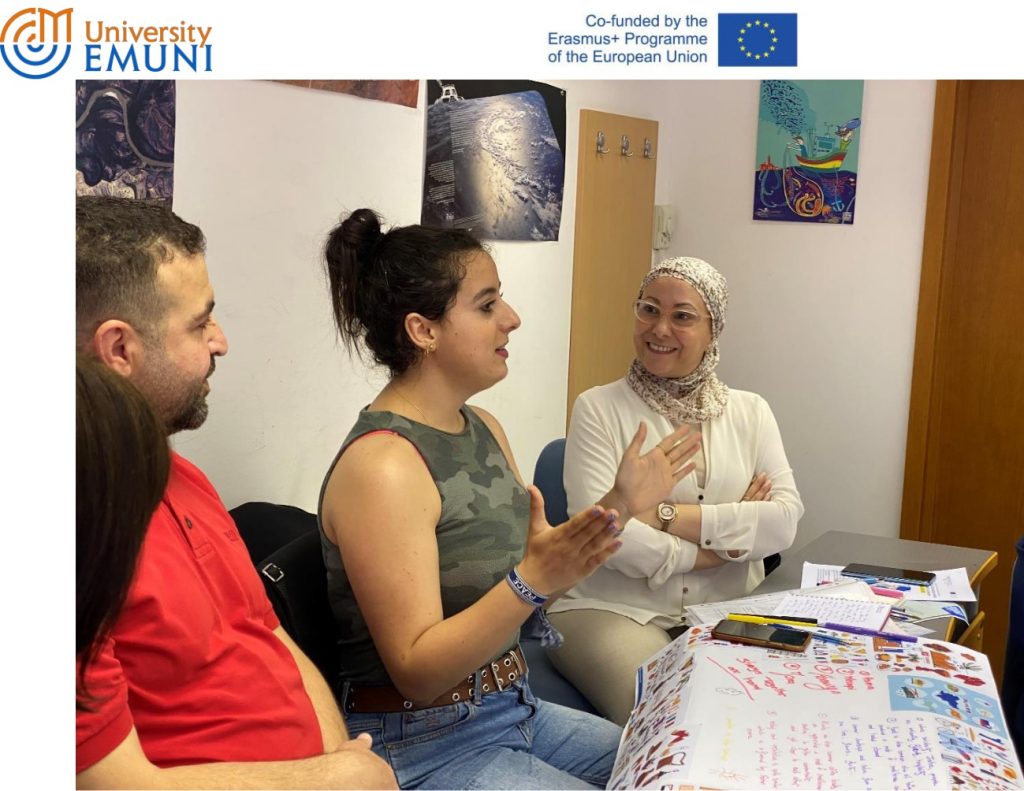
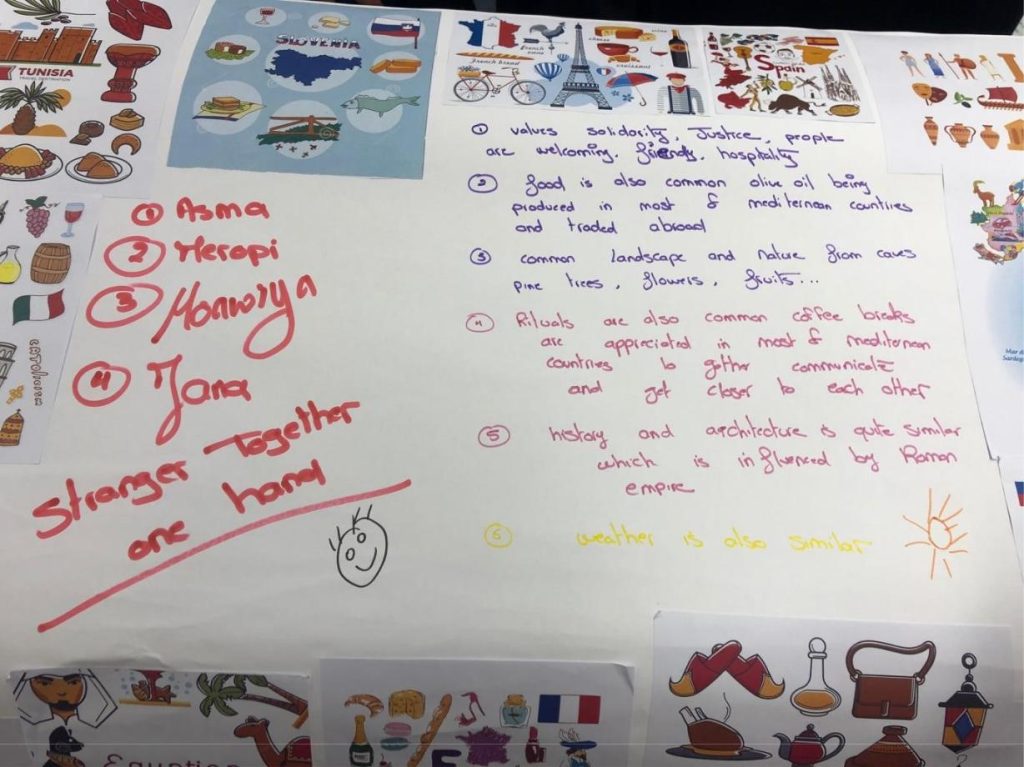
Following the quiz, Ms. Sarkis & Ms. Saade, along with fellow International Week participants, listed the similarities between Mediterranean countries, the aim of which was to bring everyone closer together. Ms. Saade: ´´It demonstrated that regardless of our geographical distances and cultural differences, our shared characteristics unite us in the Mediterranean. This activity fostered creativity, encouraging us to think outside the box, resulting in fruitful outcomes. ´´
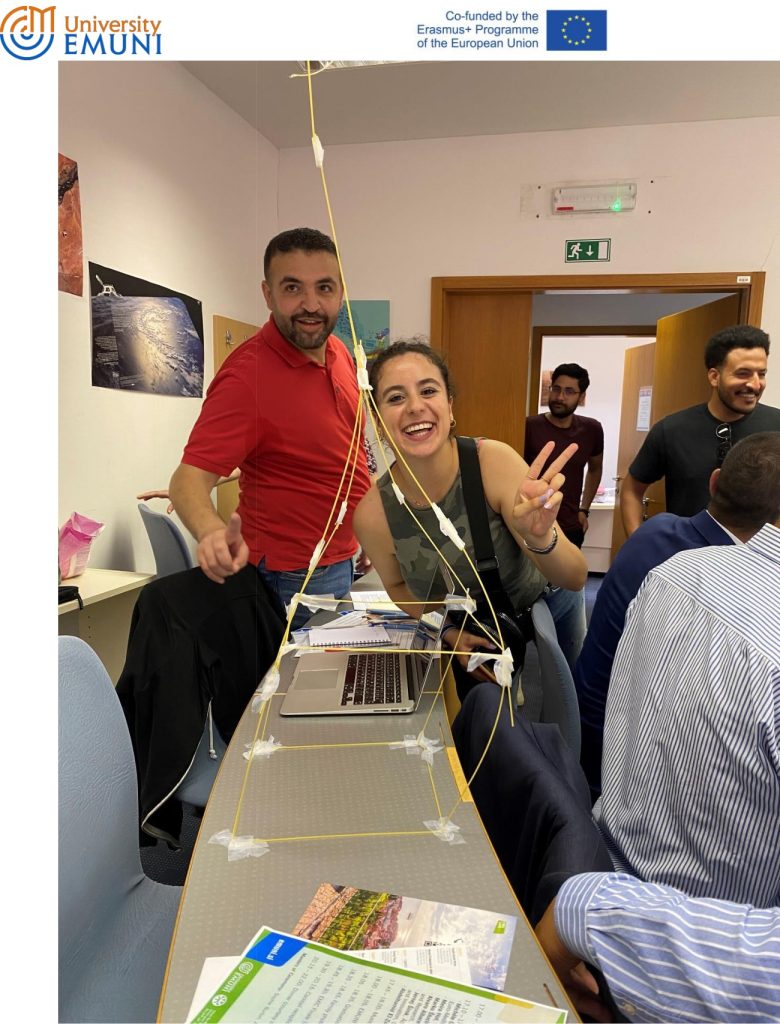
On the final days of the mobility, Ms. Sarkis & Ms. Saade had the opportunity to attend EMUNI´s 15th Anniversary and Annual Conference, the topic of which was New Models for Sustainable Universities: Adapting to Change.
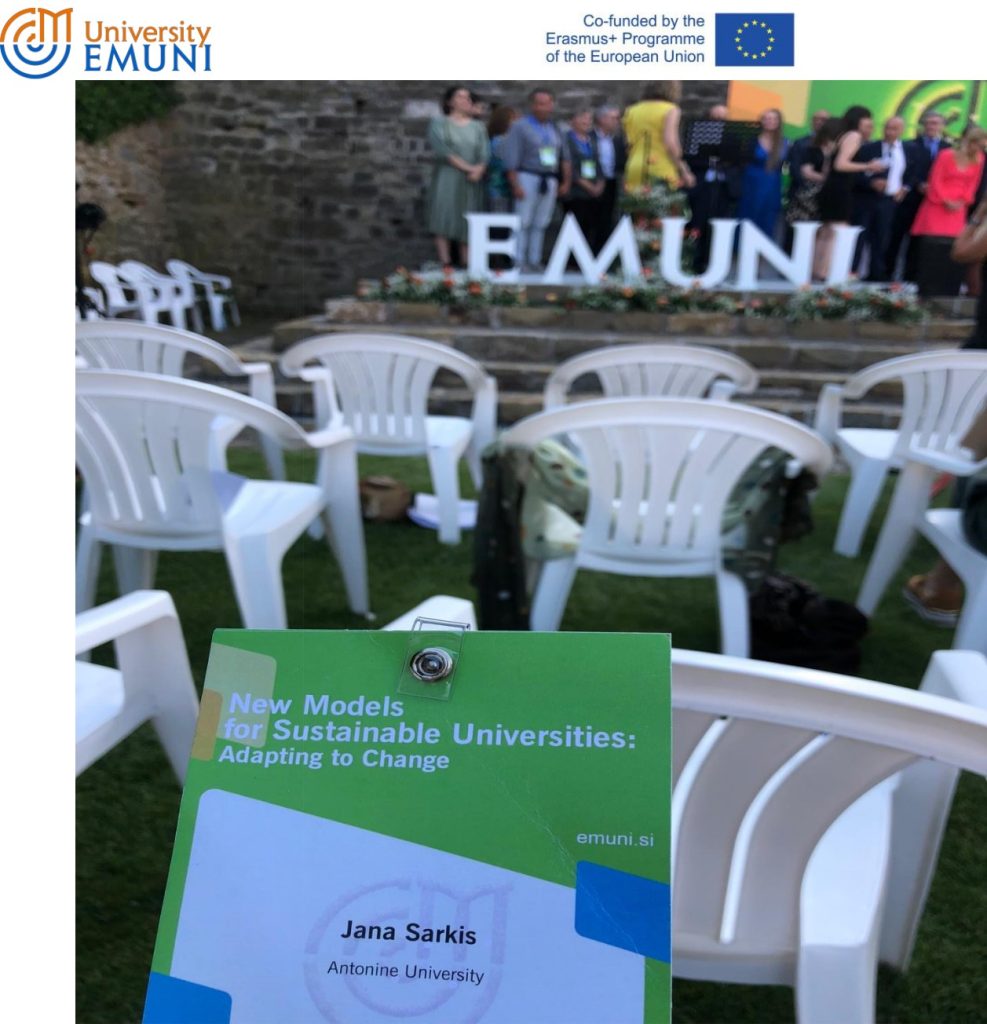
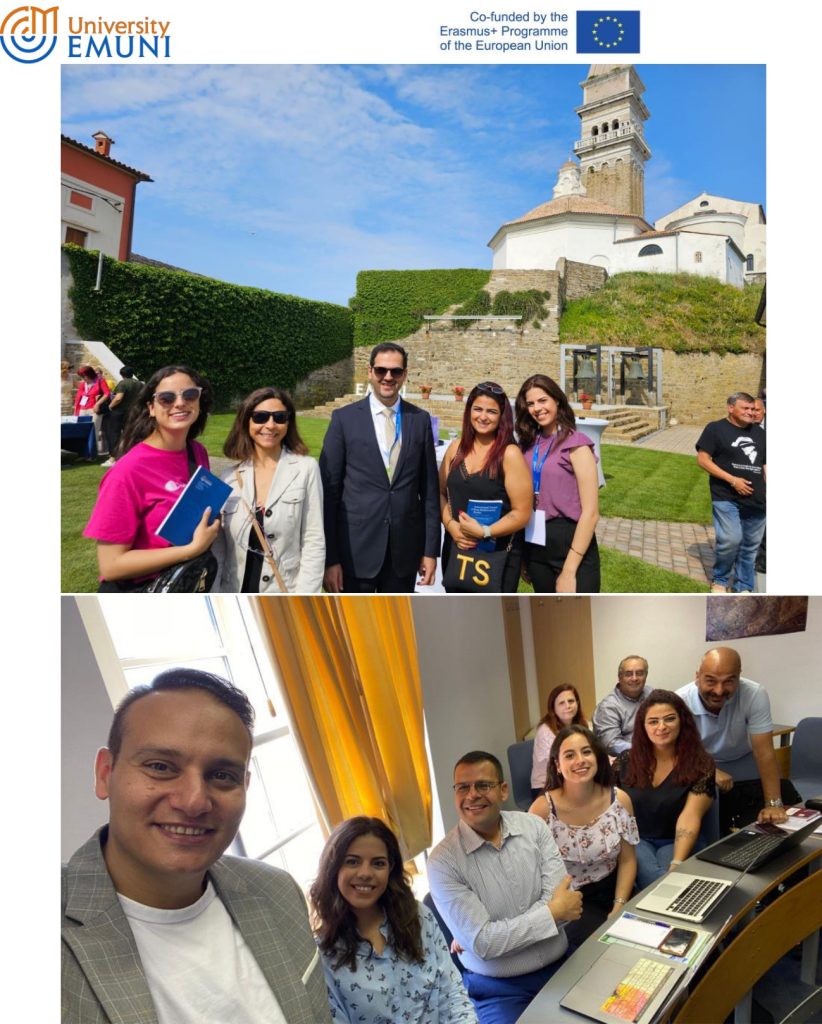
Professionally speaking, the mobility training had a significant impact on both UA guests as they were able to interact with participants from other nations, thus expanding their network. ´´Forging new relationships with people from different sectors and cultures not only broadened our grasp of global viewpoints, but also provided prospects for new collaborations, partnerships, and knowledge exchange´´ (Ms. Sarkis). Both also stated that the mobility training pushed them to think about their personal characteristics and areas for development, which will help them progress professionally. ´´This experience has inspired us to seek out new chances and advance in our careers. It has given me a more proactive approach and a broader view of job progression´´ (Ms. Saade).
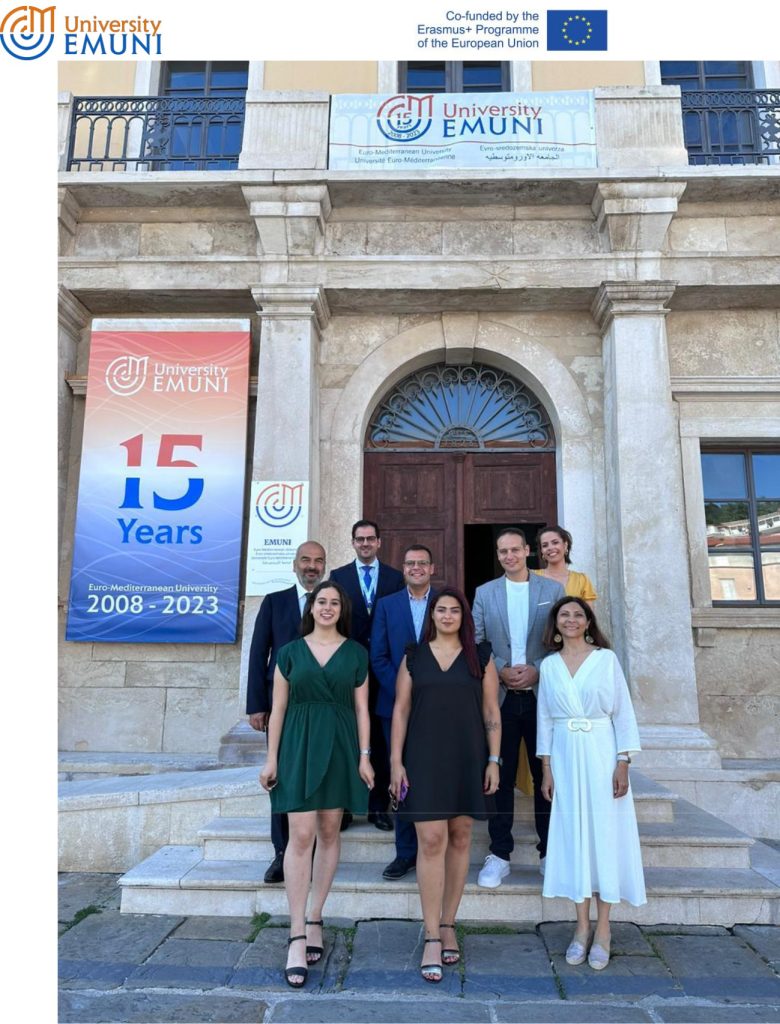
Ms. Sarkis & Ms. Saade were also joined by other UA guests, who came to EMUNI to attend the Annual Conference and a project meeting.
In terms of impact at the local level, the UA visitors believe the Erasmus+ mobility programme is invaluable in helping to boost the local educational sector by improving teaching methods and information transmission to students through adopting new educational methodologies, such as incorporating technology and artificial intelligence. This can only result in a higher standard of education in the local community. Ms. Sarkis & Ms. Saade also reiterated how mobility can help participants bring new ideas and methodologies to their local educational institutions by gaining exposure to innovative approaches and best practices. This could lead to the adoption of more effective and efficient teaching methods, which can only benefit both local students and instructors. At regional level, the mobility programme promotes connections and networking with administrative and academic employees from regional universities, opening up possibilities for regional educational partnerships and cooperation, where knowledge, resources, and skills can be shared. The mobility programme’s impact extends beyond institutions to the regional level. EMUNI and UA both agree, that through collaborative efforts and accomplishments, mobility enables participants to contribute to the region’s overall growth through raising educational standards, encouraging collaboration, and embracing innovative.
